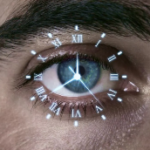Recent Glaucoma News
Open-Angle Glaucoma is Hereditary
My sister was recently diagnosed with open-angle glaucoma. How do I know if I have glaucoma? By: NALINI A. MADIWALE, M.D. Board-Certified Ophthalmologist Glaucoma Specialist A. Unfortunately, open-angle glaucoma can run in families and since your sister was diagnosed with open-angle glaucoma, you should make an eye appointment with an ophthalmologist for glaucoma testing. Open-angle […]Read More >
Why does my eye exam take so much time?
A. If your eye exam is taking more than an hour, you’re most likely having a dilated eye exam. During your dilated eye exam, both of your eyes will be inspected for any signs of vision problems and/or eye diseases such as glaucoma, macular degeneration, diabetic eye disease and cataracts. The dilated eye exam is a […]Read More >
Type 2 Diabetes & Your Vision
All About Eyes…Ask an Ophthalmologist By: David Rabady, M.D. Ophthalmologist & Retina Specialist Ophthalmic Consultants of the Capital Region Q. I was recently diagnosed with type 2 diabetes. Will my eyesight be affected? A. Diabetes is a disease that affects all areas of your body—including your eyes. Eye care is especially important for people with […]Read More >
Ask An Ophthalmologist…
By: NALINI A. MADIWALE, M.D. Board-Certified Ophthalmologist Glaucoma Specialist Ophthalmic Consultants of the Capital Region Q. Both my mom and aunt have glaucoma; is it hereditary? A. Yes, glaucoma can run in families but this is not the only risk factor. Glaucoma is a group of diseases that damage the eye’s optic nerve which can […]Read More >
Why do I need a dilated eye exam?
All About Eyes: Ask an Optometrist By Judith Archibold, O.D. You might think that because your vision is fine your eyes are, therefore, also healthy. But visiting your eye doctor for a comprehensive dilated eye exam is the only way to be absolutely certain. During your dilated eye exam both of your eyes will be […]Read More >
All About Eyes: Ask an Ophthalmologist
By Allen W. Zieker, M.D. Q. I need to have cataract surgery. I’m farsighted and currently wear glasses. Is it possible to have my vision corrected during cataract surgery so that I no longer have to wear glasses? A. The recent FDA approval of the TECNIS® Symfony Intraocular Lens (IOL) is great news for people […]Read More >
Got Glaucoma? See a Specialist.
In this world where patients can easily look up health information online and everyone is a jack of all trades, there are still many health situations where seeing a specialist not only makes sense, but could make a huge difference in your outcome. Glaucoma falls into the must see specialist category. Glaucoma is a group […]Read More >
New data finds a correlation between CPAP mask usage and the possibility of mouth bacteria invading the eye after patient has the Trabeculectomy procedure.
Important Information for Glaucoma Patients who had the Trabeculectomy or Tube Shunt Procedure for Glaucoma Treatment Last week, new data has emerged indicating that a CPAP mask, used for sleep apnea, could promote a devastating eye infection following Trabeculectomy. It appears that very aggressive mouth bacteria can infect the eye via the airflow from the […]Read More >
January is Glaucoma Awareness Month. Make 2016 A Healthier Year!
As you plan for a healthier 2016, why not get a comprehensive dilated eye exam? It’s the only way to find out for sure whether you have glaucoma, one of the leading causes of blindness in America. An eye disease that can rob you of your vision, glaucoma often comes with no early warning. No […]Read More >
Do You Have Trouble Seeing at Night?
If so, you’re not alone. Night blindness (also known as nyctalopia) is a condition in which someone has difficulty seeing in dim light or darkness (no, you’re not actually blind). Night blindness is not a disease, but rather an indication of an underlying condition. Symptoms of night blindness include: • Difficulty adapting to the dark […]Read More >

